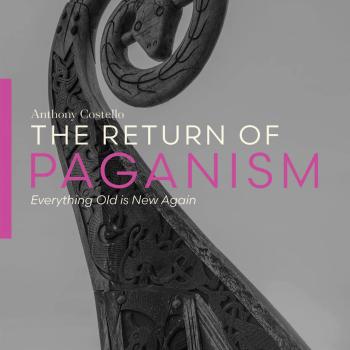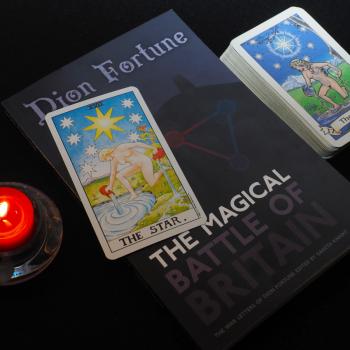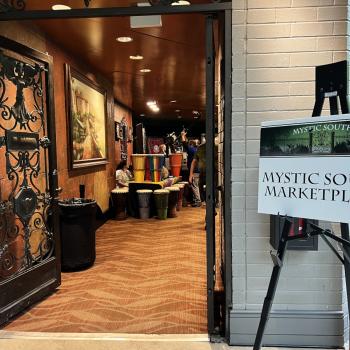I watched The Wicker Man again this past weekend. That’s the 1973 original directed by Robin Hardy, which is the only Wicker Man. The Wicker Tree is Hardy’s 2012 “spiritual sequel.” It’s not bad, but it can’t hold a candle – much less a flaming effigy – to the original. The 2006 remake is an abomination of which we will not speak.
The Wicker Man is usually categorized as “folk horror” – there’s nothing supernatural in it. The fright comes from watching humans do terrible things, not because they’re evil but because they’re doing something greatly at odds with the social expectations of the viewers.
I don’t remember exactly when I saw The Wicker Man for the first time. But I know it was sometime in my teens, after I had figured out there was something wrong with what I was being taught at the fundamentalist church my parents took me to, but before I was able to begin my escape.
I enjoyed watching The Wicker Man and I saw nothing scary about it. The ending felt odd when I first saw it: unexpected and not quite right, but satisfying in a way I couldn’t articulate then but understand deeply now.
Let’s be clear: human sacrifice is wrong. It was wrong when the ancients did it – which some of them did, though almost certainly not to the extent some of their detractors claimed (Julius Caesar, I’m looking at you). It would be wrong to do it today, even with a willing sacrifice. For all his faults, Sergeant Howie did not deserve what happened to him.
Still, after watching countless movies where witches and Pagans were burned at the stake, it feels good to be on the other side of the flames for a change. Though it should be noted that Sergeant Howie wasn’t sacrificed because he was a Christian. He was sacrificed because he was a virgin, a representative of the King (that should have been the Queen in 1973, but let’s not nitpick), and a fool who came willingly.
More than that, Summerisle is the kind of joyously sensual Pagan community that so many of us dream about.
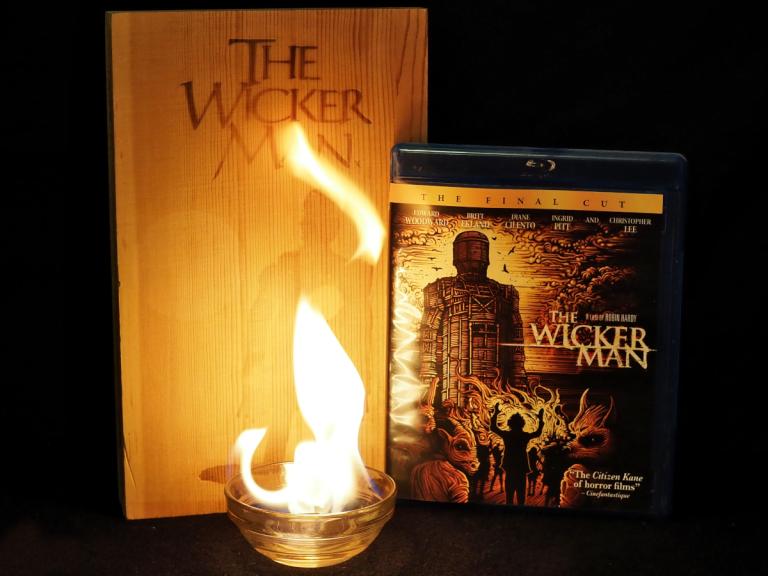
Accept our sacrifice!
“You’ll simply never understand the true nature of sacrifice” – May Morrison to Sergeant Howie
The Wicker Man is a horror movie, not a work of religious studies. Still, it got quite a bit right about Paganism, though more thematically than in detail. But one of the things it got wrong – that a lot of people get wrong – is its concept of sacrifice.
There are two separate but related definitions of sacrifice. The first definition is “to give up.” We sacrifice wine when we pour a libation and give up the opportunity to drink it ourselves. The second definition is “to make sacred.” Sacrificial animals in ancient Greece and other places were going to be eaten regardless. Ritual and prayers dedicated them to the Gods, making the community meal a sacred event, rather than yet another secular dinner. (Some sacrifices gave the whole animal to the Gods – that would fall in the first category of “to give up”)
But Sergeant Howie wasn’t a member of the Summerisle community – they didn’t give up anything. And while they did mark him as a sacred king, he was tricked into coming forward – he was not a willing sacrifice, certainly not in the modern sense of informed consent.
Throughout history witches and Pagans have been accused of making horrendous sacrifices to beings unworthy of such honors. These slanders ignore the fact that to be effective, a sacrifice must be something that is yours that you give away willingly. Offering a life that is not yours to give may be suitable payment for services provided by demons (or maybe not – I’ve never tried) but it is no way to obtain the favor of the Gods.
During the height of the polytheist movement a few years ago, we had a series of discussions about sacrifice, including animal sacrifice. I have never performed animal sacrifice and I imagine I never will, but I respect those who do it properly. If you think animal sacrifice is horrible and you eat meat, you haven’t thought through the process and your cultural bias is showing.
The modern Pagan movement isn’t exactly comfortable with the concept of sacrifice. Even those of us who aren’t Wiccan like to quote The Charge of the Goddess: “nor do I demand aught of sacrifice, for behold, I am the Mother of all things and my love is poured out upon the Earth.” Our rituals – including my own – speak often of offerings but rarely of sacrifices.
Offerings given in hospitality and love are good and right, but sacrifices are still necessary. Ritual sacrifices of food and drink and other items of value remind us that tangible sacrifices of time, effort, and resources are required if anything of value is to be accomplished.
When you approach the Wicker Man, the Corn God, or just the altar you keep in your house: are you willing to make sacrifice? Are you willing to give up time and treasure, sweat and blood, to learn something new? To build something necessary? To affirm and support a divine relationship? To extract yourself from a bad situation? To bring about a good situation?
Even in our modern high tech society, sacrifice remains necessary.
Take our prayers, oh Wicker Man
As for the Wicker Man itself, did such a thing ever exist? Maybe. Julius Caesar wrote about it, but he wasn’t exactly an objective observer.
The Wicker Man definitely exists in modern times, albeit without the sacrifice of virgin police officers. Here’s a 2014 piece Damh the Bard wrote about attending a camp that built and burned a 25-foot-tall wooden effigy. Participants placed prayers and offerings inside the figure and the flames carried them into the Otherworld. Damh turned that experience into a song:
Wicker Man, oh Wicker Man,
Like a mighty God you stand,
You are guardian of our land,
Take our prayers oh Wicker Man
Denton CUUPS has done similar things, although on a much smaller scale. Our 2016 Samhain ritual featured a Corn God. We wrote prayers and tied them to the effigy, then burned it in a fire pit. In 2021 – our first public Samhain after the restrictions of the pandemic – we ripped the Corn God to shreds in a frenzy of mourning, anger, and release.
The metaphysics of prayer are an interesting thing. Do we need the smoke of sacrifices or of incense to carry our prayers to the Gods? I think most modern Pagans would say no – I certainly would. Still, I’ve participated in burning rituals often enough to recognize that there’s something about them that adds extra power to prayers. Is it the smoke? Is the flames transforming our written messages into energy? Perhaps it’s the psychological impact of participating in something so ancient and primal. I suspect it’s all of the above.
Whatever the reason, there’s something special about approaching a Wicker Man, a Corn God, or a flaming cauldron and placing your prayers inside it. It reminds you that when it’s done right, prayer isn’t just a wish or an idle thought. It’s the deepest yearnings of your heart, spoken to divine persons who have the power to intercede on your behalf. Or not, as they see fit.
It’s an act that inspires reverence. Not subservience and not self-debasement, but deep respect for beings who, though it is accurate to call them persons, are far more than we are.
And when we commune with them in prayer and meditation, we become a little more like them than we were before.
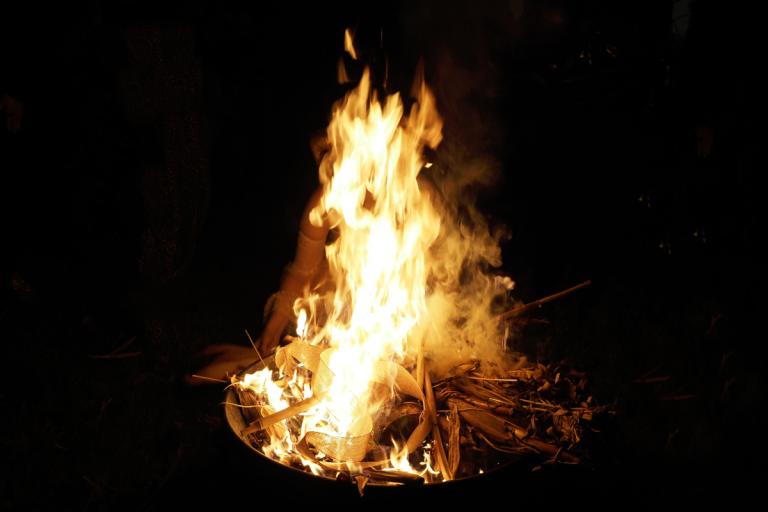
Contemplating the true nature of sacrifice
I love movies that include witchcraft and Paganism. The good ones are inspiring and even the bad ones are usually entertaining. We just have to keep them in proper perspective – movies are rarely good sources of historical information.
The best movies don’t just entertain you – they also make you think.
The Wicker Man lets us imagine what it would be like to live in a community where everyone shares our beliefs and practices.
It warns us against unreflectively adopting any religious practice, especially practices that harm others or ourselves.
(Is Lord Summerisle a sociopathic con man or does he truly believe in the efficacy of human sacrifice? As a critic pointed out on one of the Blu-ray extra features, the movie makes it impossible to say for sure.)
And for us as modern Pagans, The Wicker Man calls us to contemplate the nature of prayer, and the true nature of sacrifice.
If you haven’t seen The Wicker Man recently, watch it again. It’s currently available on several streaming platforms, including Amazon Prime and Tubi.







